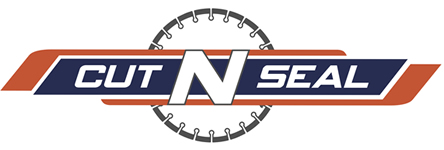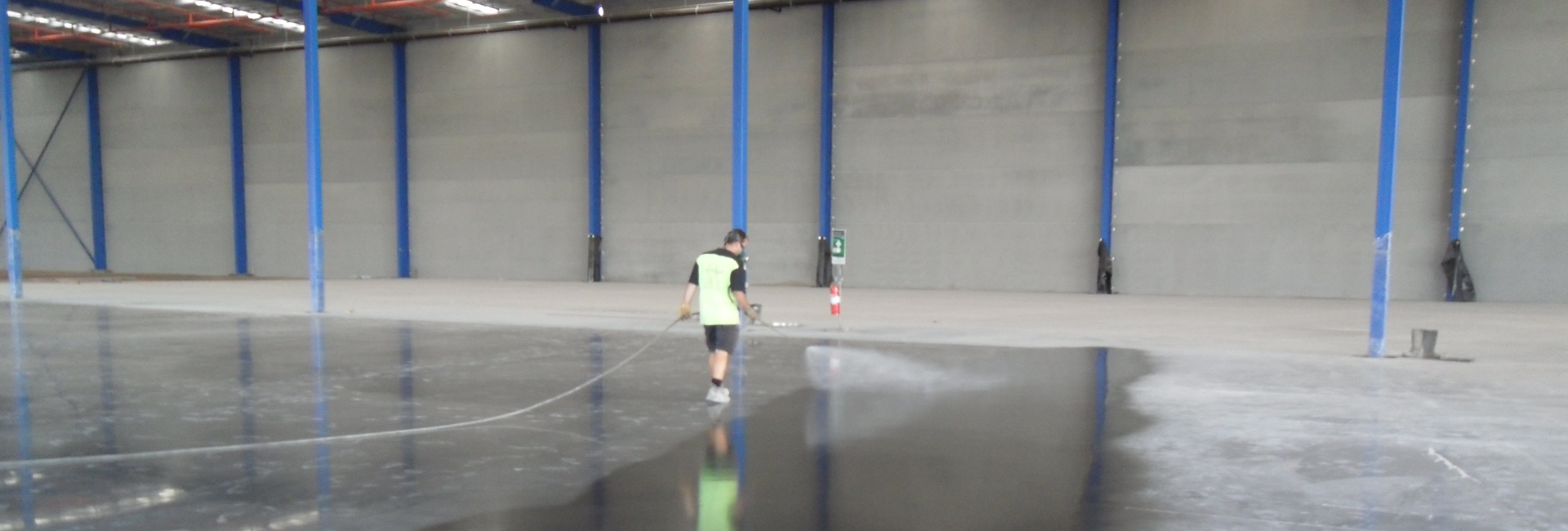We use a wide range of products from chlorinated rubber to water based acrylics.
Apply concrete densifiers to new and old concrete
Sweep, scrub and sealing services applying water or solvent based acrylics to carparks and warehouse floors
Curing is one of the most important steps in concrete construction, because proper curing greatly increases concrete strength and durability. Concrete hardens as a result of hydration: the chemical reaction between cement and water.
However, hydration occurs only if water is available and if the concrete’s temperature stays within a suitable range. During the curing period-from five to seven days after placement for conventional concrete-the concrete surface needs to be kept moist to permit the hydration process. New concrete can be wet with soaking hoses, sprinklers or covered with wet burlap, or can be coated with commercially available curing compounds, which seal in moisture.
Curing. We all know it’s important, but what exactly is it, why is it important and what factors affect curing?
Adding water to portland cement starts a chemical reaction called hydration. As hydration proceeds over time, the portland cement and water are transformed into beneficial calcium silicate hydrate compounds. These compounds are the glue that hold the aggregates together, creating the hard, solid material we know as concrete. There are other compounds that form during the hydration process, but they are not responsible for strength.
Curing is the process of maintaining moisture levels inside cast concrete so that hydration can continue. As long as free moisture and unhydrated cement exist inside the concrete, the strength, hardness and density will gradually increase. Practically speaking, curing is simply the process of keeping the hardened concrete moist so that it can continue to gain strength.
As the concrete gets stronger and denser, its porosity decreases. This is important, because early on the concrete is much more porous than when it’s older and has hydrated longer. Porous concrete loses moisture to evaporation quickly, and this can lower internal moisture levels and stop hydration. If the concrete dries out, it stops gaining strength. This is why it is so important to cover your concrete right after casting and keep it moist.


